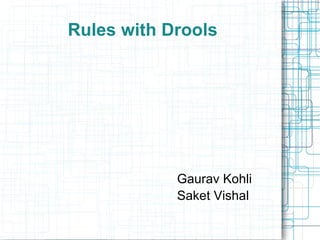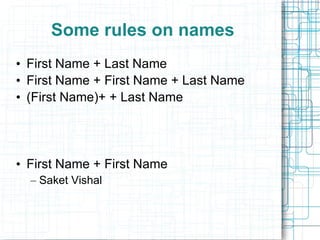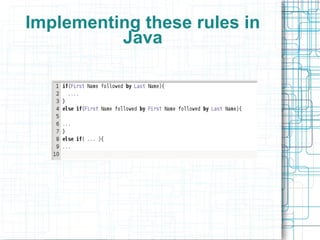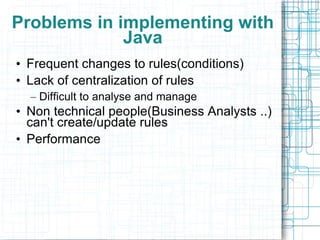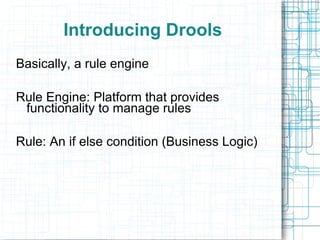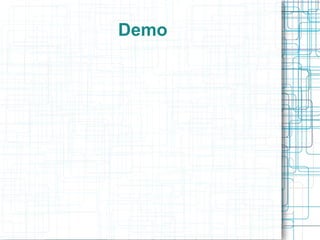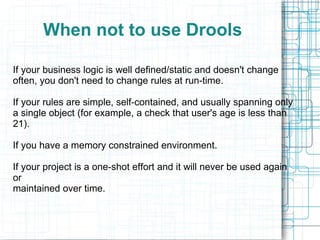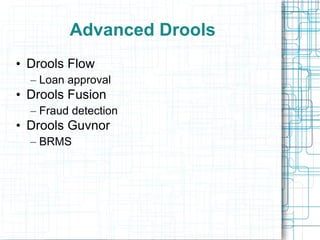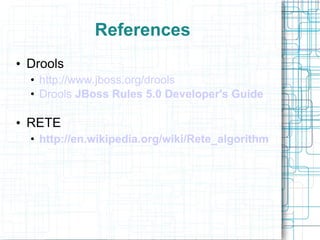Rules with Drools
- 1. Rules with Drools Gaurav Kohli Saket Vishal
- 3. What about this? Akshay Kumar, 32, Chandini Chowk, Delhi, 110006
- 4. Lets talk about Akshay Kumar
- 5. Some rules on names First Name + Last Name First Name + First Name + Last Name (First Name)+ + Last Name First Name + First Name Saket Vishal
- 6. Implementing these rules in Java
- 7. Demo
- 8. Problems in implementing with Java Frequent changes to rules(conditions) â Lack of centralization of rules Difficult to analyse and manage Non technical people(Business Analysts ..) can't create/update rules Performance
- 9. Introducing Drools Basically, a rule engine Rule Engine: Platform that provides functionality to manage rules Rule: An if else condition (Business Logic) â
- 10. Rules in Drools
- 11. Demo
- 12. The Big Picture
- 13. Back to rules in Drools DSL â Domain Specific Languages Human readable rules
- 14. Demo
- 16. Behind Drools
- 17. When not to use Drools If your business logic is well defined/static and doesn't change often, you don't need to change rules at run-time. If your rules are simple, self-contained, and usually spanning only a single object (for example, a check that user's age is less than 21). If you have a memory constrained environment. If your project is a one-shot effort and it will never be used again or maintained over time.
- 18. Alternatives to Drools ILOG (now IBM)âJRules Fair IsaacâBlaze Advisor Corticon's BRMS, Haley (now Oracle) Business Rules Engine PegasystemsâPegaRules, Production Systems TechnologiesâOPSJ CLIPS OpenRules or Jess
- 19. Advanced Drools Drools Flow Loan approval Drools Fusion Fraud detection Drools Guvnor BRMS
- 20. ?
- 21. References Drools http://www.jboss.org/drools Drools JBoss Rules 5.0 Developer's Guide RETE http:// en.wikipedia.org/wiki/Rete_algorithm
- 22. Thank You!

